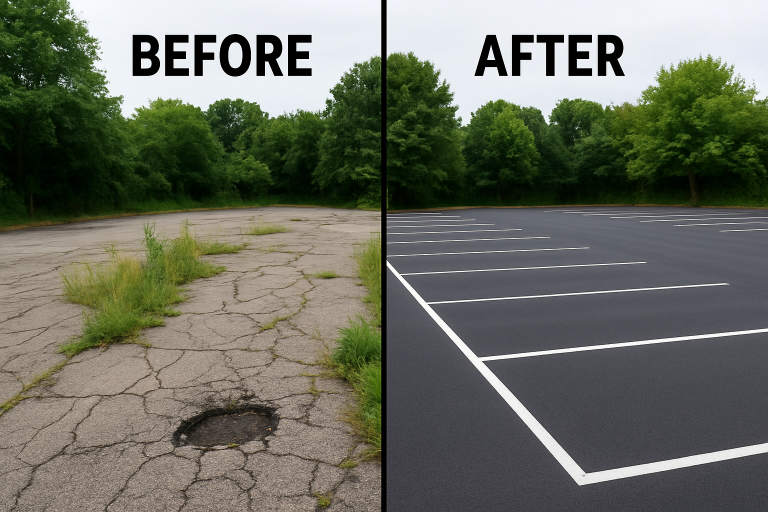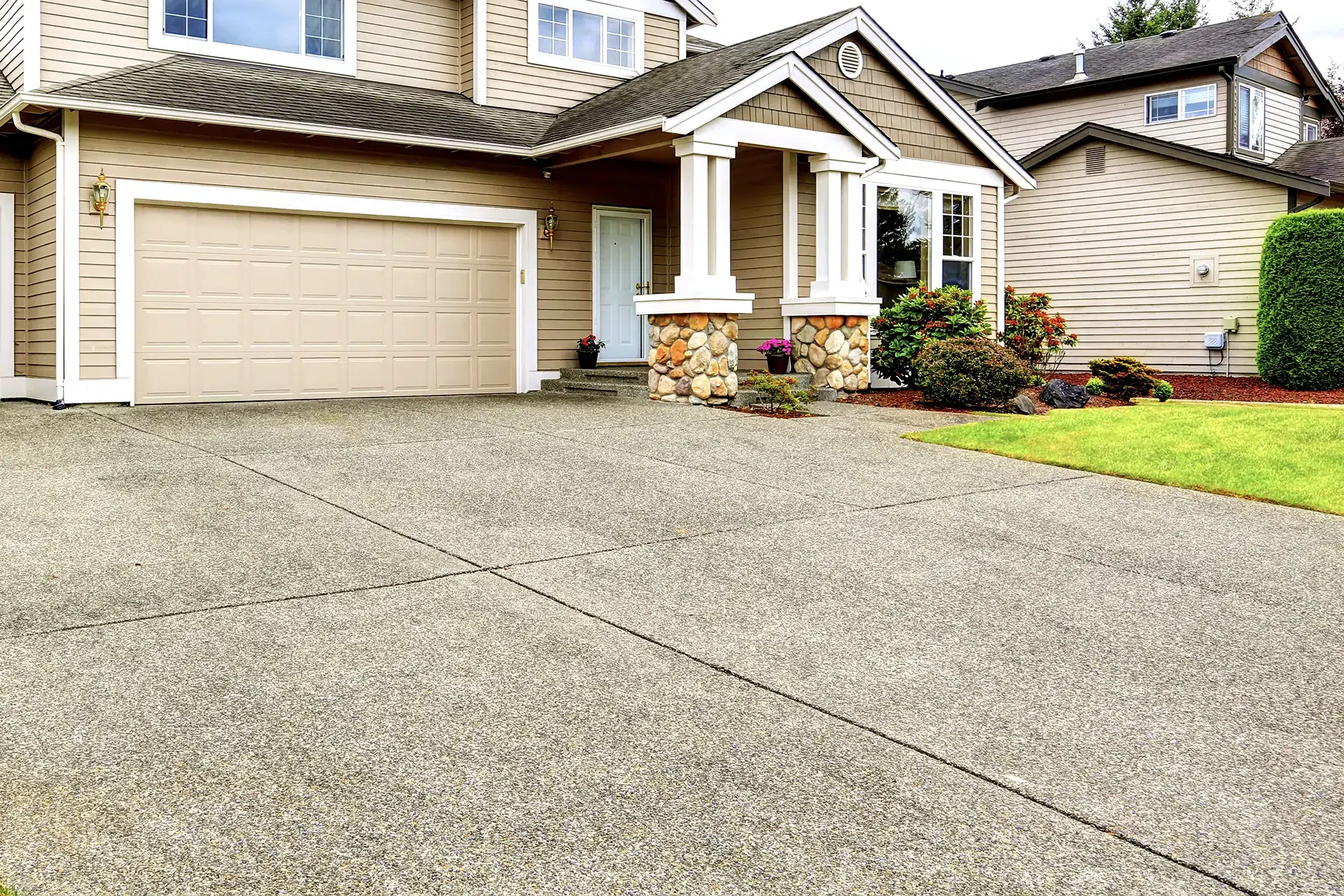Key Takeaways
- Neglected driveways and parking areas can lead to increased repair costs over time, as small cracks and damage worsen and demand more extensive fixes.
- Poor maintenance may result in legal liabilities due to accidents, injuries from trips or falls, and potential lawsuits for failing to provide a safe environment.
- Property value and curb appeal can diminish with deteriorating parking spaces, which can affect both property sale value and tenant or customer interest.
- Regular maintenance is a cost-effective strategy for preventing extensive and expensive damage, thereby safeguarding both aesthetics and investment.
Neglected driveways and parking areas often fall low on maintenance lists, but this can lead to more than just looks. Property owners underestimate the hidden costs of deferred upkeep—costly repairs, safety risks, liabilities, environmental damage, and lower property values—that can impact budgets. Facility managers must understand these issues to keep spaces safe, attractive, and functional. Businesses in the Pacific Northwest, in particular, must contend with increased rainfall and seasonal weather changes, making timely upkeep and preventive services like parking lot sweeping Renton, WA even more critical. Proactive maintenance prevents small issues from becoming major disasters, safeguarding surface integrity and property reputation. Ignoring minor cracks, potholes, and erosion diminishes appeal and risks escalating problems that impact budgets and legal exposure. Neglected driveways under heavy use, weather extremes, and lack of professional care accelerate deterioration, leading to costly repairs and downtime. Regular maintenance and cleaning preserve driveway function, property value, and safety, reducing expenses and risks while protecting assets and people.
Accelerated Deterioration and Repair Expenses
A hairline crack in asphalt or concrete can quickly lead to costly repairs if ignored. Water, oil leaks, and debris worsen imperfections, expanding the damage. Water infiltrates surface cracks, erodes sublayers, and causes cracks to grow through freeze-thaw cycles common in regions like the Pacific Northwest. Seasonal rainfall and snow melt speed up deterioration, turning minor repairs into full replacements. Early interventions like sealing cracks or patching potholes are much cheaper than resurfacing entire areas later. Preventative maintenance extends surface life, saves property owners thousands, and preserves property value.
Increased Liability Risks
Safety is essential in managing driveways and parking lots. Damaged surfaces pose hazards for pedestrians and drivers, increasing risks of trips, falls, and accidents. Poor maintenance can lead to legal liability, costly settlements, higher insurance, and reputational damage. Regular inspections and prompt repairs reduce hazards, protect visitors, and prevent legal issues. Investing in repairs and signage is small compared to potential legal costs.
Decline in Property Value and Curb Appeal
The condition of its exterior spaces heavily influences the visual impression of a property. Curb appeal matters, not just for homes, but also for businesses, apartment complexes, and institutions. A well-maintained driveway or parking area signals attention to detail and upholds the overall image of a residence, commercial complex, or retail establishment. By contrast, visible neglect—such as cracked pavement, faded striping, or overgrown vegetation—invariably deters potential buyers, tenants, or customers, signaling an overall lack of care. Appraisers and real estate agents frequently observe that deteriorating hardscape can directly decrease property valuations and reduce market interest, regardless of the property’s other features. Curb appeal is a leading factor in property desirability, influencing not just market value but also the speed at which a property sells or leases.
Operational Disruptions
Neglected parking areas in commercial, retail, and institutional properties can disrupt operations and deter customers. Unsafe or poorly marked lots discourage visitors, damage reputation, and hurt revenue. Ongoing repairs from deterioration cause closures and access issues, frustrating tenants, employees, and clients. Delivery drivers may make extra trips or avoid your business, while customers may go elsewhere. These problems reduce productivity, satisfaction, and revenue, harming your reputation. Regular maintenance could prevent such issues.

Environmental Impact
Neglect’s effects go beyond looks, money, and safety to impact the environment. Deteriorated surfaces with cracks and holes increase stormwater runoff, carrying pollutants like oil, heavy metals, trash, and debris into waterways, worsening environmental issues and cleanup costs. Poorly maintained lots cause flooding, erosion, and damage around properties. Routine sealing, sweeping, and upkeep help reduce pollution, are environmentally friendly, and can help properties meet regulations and improve reputation.
Preventive Maintenance: A Cost-Effective Solution
The best way to avoid hidden costs is through regular, proactive maintenance like inspections, sweeping, sealing, repainting stripes, and quick repairs. These prevent issues from becoming major problems, enhancing safety and appearance while lowering long-term costs. Regular maintenance provides a better ROI than emergency repairs, helping property owners plan and extend the lifespan of asphalt or concrete. Working with local professionals ensures durable, appealing driveways and parking areas, saving money and offering peace of mind.
Conclusion
Overlooking maintenance for driveways and parking areas can lead to a range of hidden costs, including expensive foundation repairs, business interruptions, legal claims, and decreased property value, as well as negative environmental impacts. Regular attention pays dividends not only in terms of safety and financial health but also in upholding corporate responsibility and sustainable stewardship. Prioritizing routine care and professional inspections allows property owners and managers to safeguard their investments, minimize avoidable expenses, and foster a positive impression that lasts for years to come.

